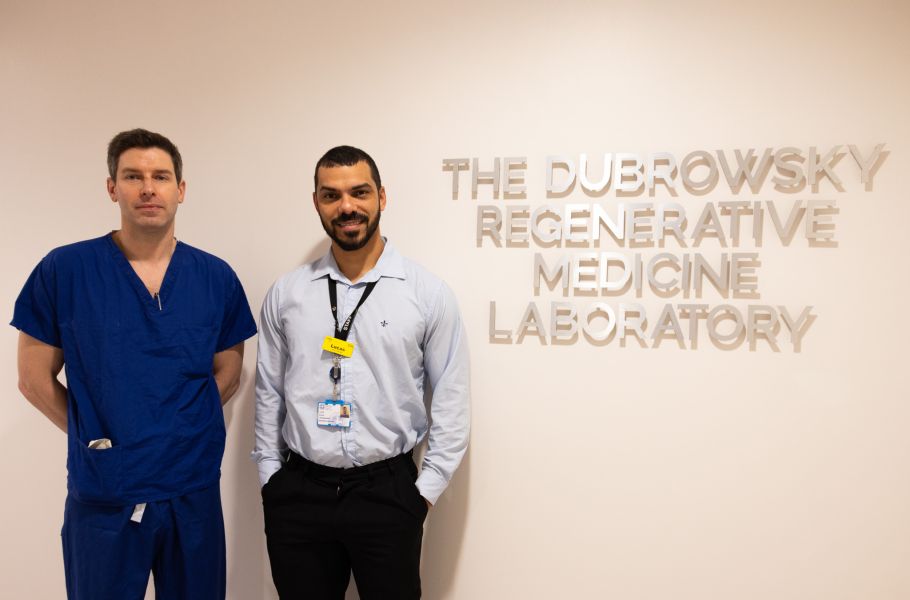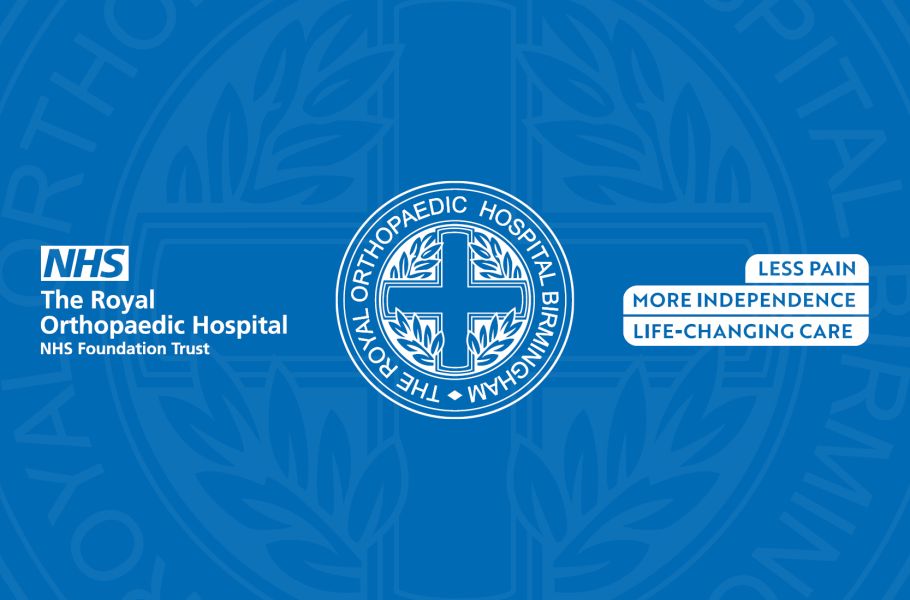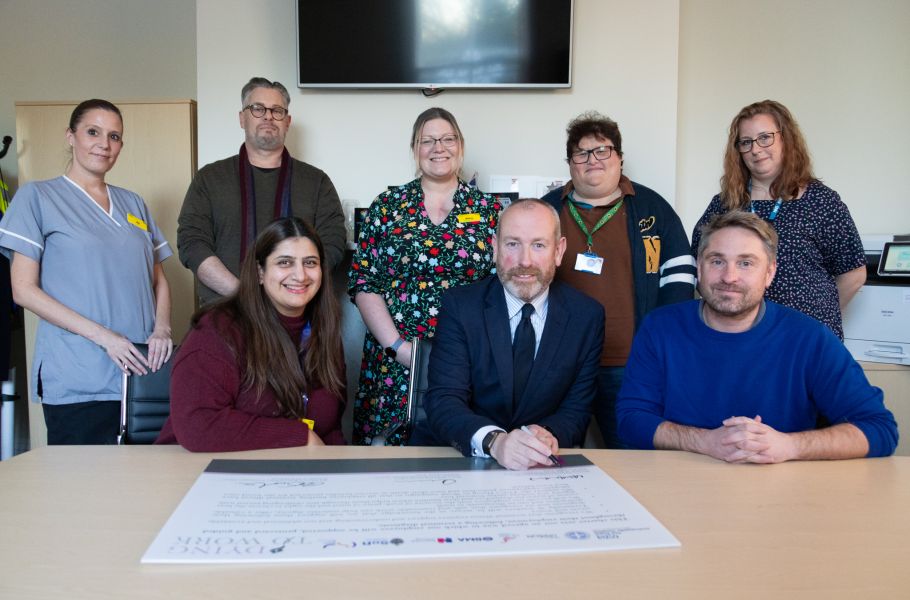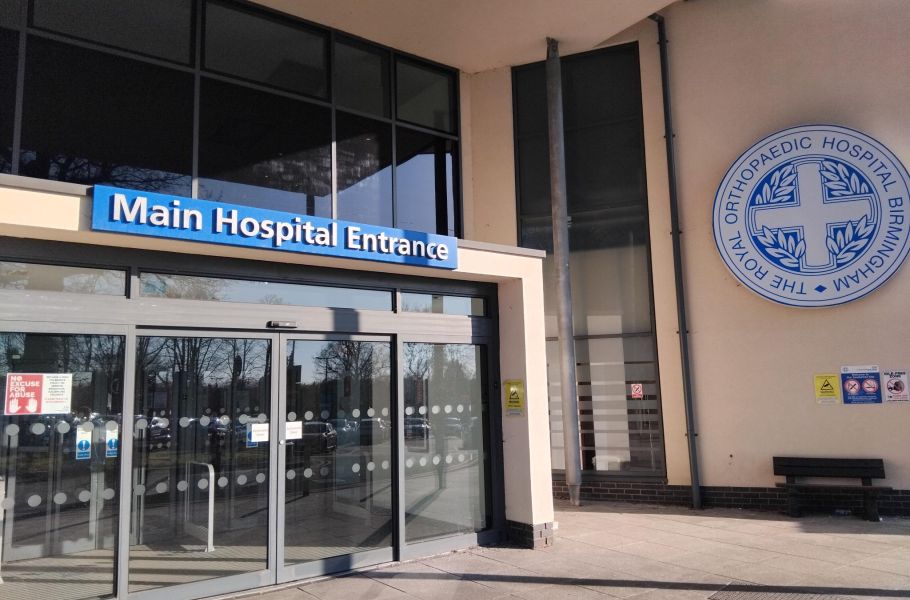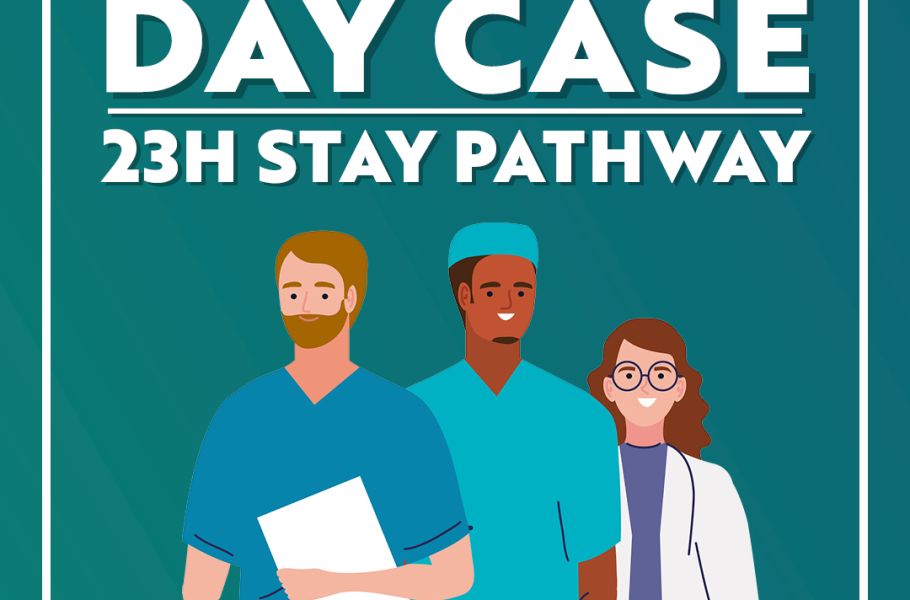ROH completes recruitment for RACER Hip Trial

The RACER Hip Trial is exploring the clinical effectiveness of robotic assisted hip replacement.
Total hip replacements have been performed for many years by orthopaedic surgeons with a standard set of instruments, but in recent years a robotic arm has been used by some surgeons to help them perform total hip replacement operation. Held and controlled by the surgeon throughout the procedure, the robot arm is meant to help move the instruments into the correct position by sensing the position of the leg more accurately.
Because total hip replacements have such a high success rate, with about 90-95% patients experiencing relief from hip pain, it’s difficult to know whether using the robot to help perform a hip replacement is any better or worse than without the technology. The RACER Hip Trial is looking to understand which operation results in less pain early after surgery and which gives a better quality of life in the longer-term, as well as how the hip feels and functions after surgery.
The RACER Hip Trial is a randomised controlled trial, meaning patients have a 50% chance their surgeon will be using a robot arm to assist. The patient is not aware of the decision as this is randomly made by a computer and they are only advised if the robot arm was used at the end of the study.
The trial, which began in 2021, has recruited a total of 391 patients for the study. 28% of those recruits are patients from the Royal Orthopaedic Hospital (ROH). This now completes recruitment and once all patients have had their surgery, the data will be assessed, and conclusions can be drawn.
Leading the recruitment at ROH, Hannah Glover – Clinical Research Nurse, discusses more about the importance of clinical trials and the role of patient recruitment.
We’re thrilled to have had such a high volume of patients recruited onto this national trial. It’s a reflection of all the hard work and dedication to recruitment – without it research just couldn’t be carried out.
I think part of our success is down to the process we follow. The patient’s consultant first mentions the study to them following which the patient receives an information sheet which breaks down the study, what it involves and what is expected of the patient so they can consider whether they wish to take part. This is then followed by a phone call where a nurse will talk in more detail about the study with the patient.
This is such an important part of the process and I think one of the reasons we’ve been able to recruit so many patients is down to this element. I have a very matter of fact, concise delivery when explaining about the study, I make it very clear to the patient that there’s absolutely no pressure to be involved, there’s no change in their care in anyway and that the only variable is there is a 50/50 chance of robot assisted surgery. For some patients the mention of a robot could be daunting, so for it to not sound scary you have to keep your delivery simple.
It also helps that most of the research nursing team and I come from an orthopaedic nursing background. I was a trauma and orthopaedics nurse for several years before moving into this role so I can really sympathise with the patient journey. When a patient has a concern before surgery, or even after as they recover, I can talk them through it and help them navigate if they are feeling any pain whether or not to be concerned as I’ve dealt with acute and chronic pain with my patients many times before so I know what’s normal and what’s not.
I am so grateful to all our patients who have participated in the study, for their time and commitment and for supporting us in this vital research. Recruitment is imperative for us to collect and analyse data and thanks to all the patients at ROH who have participated, the study will be able to move into the final analysis and conclusions phase in 2025 once all patients have received their hip replacements.
I also want to thank the team here who helped with the study, Sophie Rich, our Study Coordinator, and the following consultants and surgeons: Professor Ed Davis, Mr Peter Wall, Mr Iosef Pagkalos, Mr Shakir Hussain, and Mr Dia Giebaely. The team’s hard work, passion and dedication has ensured patients are supported throughout their journey in this clinical research trial. Without these efforts we can’t improve medicine, care and treatment.
For more information on the clinical trial visit Royal Orthopaedic Hospital - Racer Hip Trial (roh.nhs.uk)

